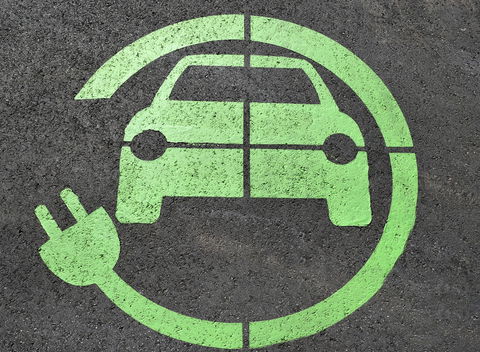In pursuit of its ambitious carbon reduction goals for 2050, the UK government has emphasised the transition to electric vehicles (EVs) by 2035 (pushed back from the original 2030 date). While this shift has led to a rapid increase in EV adoption, the supporting infrastructure is struggling to cope with the escalating demand, with cable infrastructure, in particular, presenting significant challenges to the EV market.

What are the requirements of EV charging infrastructure?
The 18th Edition of the BS 7671 Wiring Regulations states that all EV charging infrastructure must adhere to local building codes and regulations to ensure the safe installation of charging stations. The charging cable used to connect the vehicle to the EV charge point is a key component of the infrastructure and, as such, BS 7671 contains specific requirements for them. To ensure safety and optimal functionality of electrical installations, the Wiring Regulations stipulates EV charging cables must adhere to IEC 61851, which defines the connector type and communication protocol between the charging station and the vehicle. By meeting these criteria, the cable guarantees safety for users and vehicles alike, preventing overheating or other hazards associated with the electrical load.
BS 7671 also sets out requirements for the correct installation and maintenance of EV charging infrastructure, including the charging cable. Certified electricians must be involved in the installation, with regular inspections and maintenance required to ensure the correct operation of the cable and associated components in accordance with standards such as IEC 62196, which outlines the functional test requirements of cables during commissioning testing of charging unit installations.
Please note, whilst IEC 62196 covers the functional test requirements of EV charging cables, it does not cover material performance test requirements, meaning defects in the cable's material performance may go unnoticed during commissioning testing, potentially compromising its safety and reliability. It is therefore necessary to check the cable’s material characteristics have been tested by an independent certification body.
In addition, Section 722 of BS 7671 provides guidelines for the installation of EV charging equipment in both domestic and commercial premises, including the use of cables designed to meet rigorous safety standards for EV charging, such as the European Standard EN 50620 and the International Electrotechnical Commission (IEC) 62993 series of standards. These standards cover the design, construction and testing of cables used in EV charging, with EN 50620 covering the construction and testing of charging cables and IEC 62993 providing guidance on the selection and installation of cables.
Safe and reliable installations guaranteed
To guarantee safe use with EVs, charging cables must be designed and tested to ensure they are durable and resistant to wear and tear, heat and electrical interference. The BS 7671 guidelines for the installation of EV charging equipment, including the use of certified charging cables, play a crucial role in the safety of such installations, ensuring EVs can be charged safely and reliably and helping to address some of the cable infrastructure challenges faced in the transition to EVs.